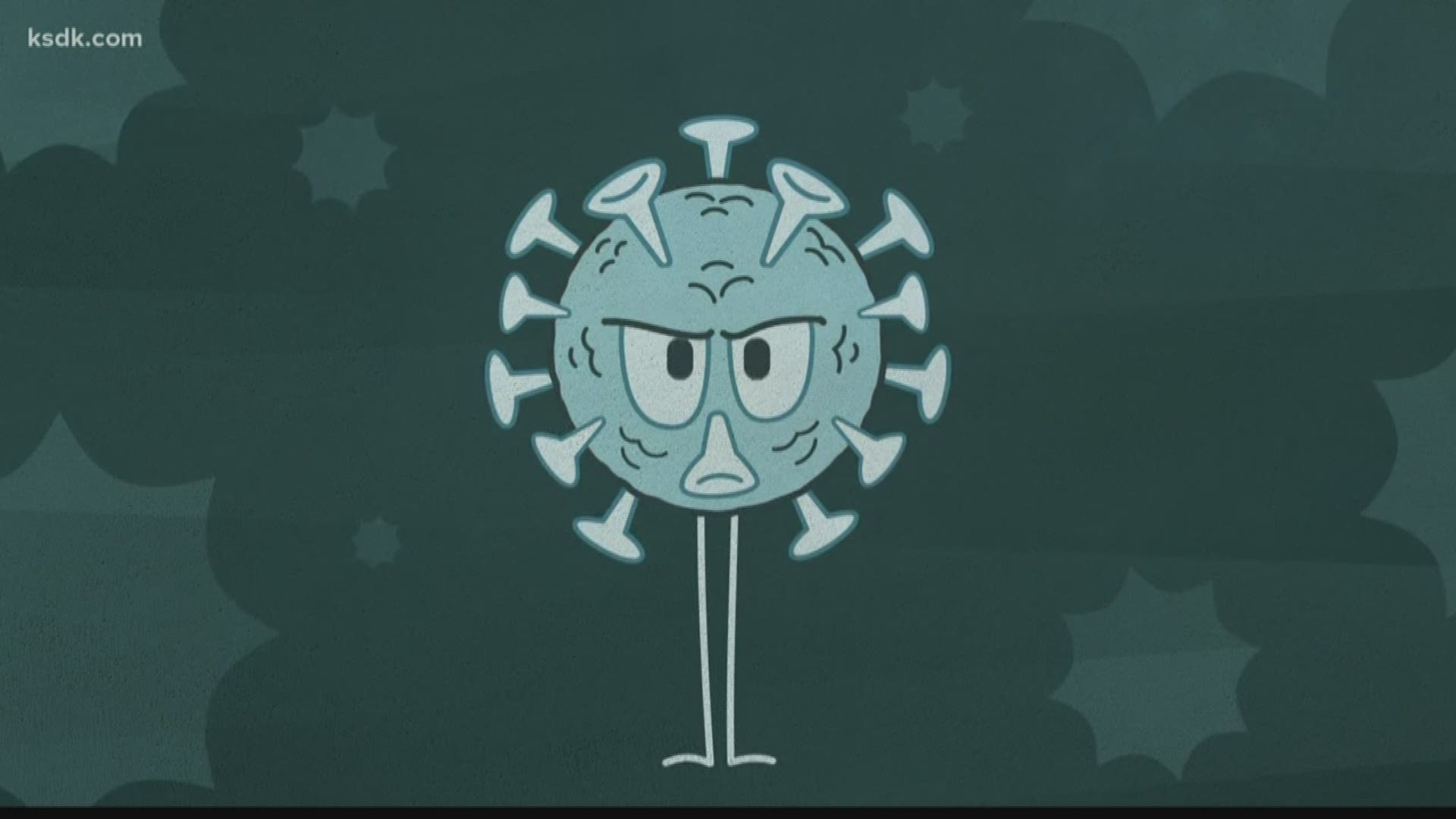ST. LOUIS — One of the top things we’re told to do to protect ourselves from the coronavirus is to wash our hands frequently, thoroughly and for 20 seconds with soap and warm water.
But how exactly does soap fight COVID-19? And why is the 20-second rule so important?
Here’s why…
If you take a really close look at soap (like, under a microscope) you’ll see a molecule. One side loves water. The other side loves fat and hates water.
Take soap and water and put it up against oil, for example, and the soap molecules will go to work. The water-loving side goes toward the water, and the fat-loving side goes toward the oil. It’s why soap does such a good job cleaning gross, grimy dishes.
As far as the coronavirus is concerned, the outer layer of the virus has a weakness: the fat-loving side of the soap molecule.
The outer layer of COVID-19 consists of the tubes that are seen sticking out from the virus. Scientists call it a membrane of oily lipid molecules.
But that membrane is no match for soap.
Each soap molecule pries the membrane apart, exposing the inside of the virus to water, which dissolves in water.
Soap molecules then wrap around the bad stuff and when you add in more water, it all washes away.
So, why 20 seconds?
Take a look at your hands. Notice all those lines? Viruses love to get in those. So, more soap time means more time to clean those cracks and grooves.
Hand sanitizer will do the trick, too, thanks in no small part to alcohol. The alcohol denatures – or, destroys – the virus.
The key part is to make sure you have at lest 60% alcohol in the sanitizer. So that vodka in the liquor cabinet probably won’t work.
More coronavirus how-to stories:
- The material you should be using for your DIY face mask
- How to make your own face mask without a sewing machine
- Doctor: Here’s the safe way to unload your groceries amid COVID-19 pandemic
- How to properly clean reusable bags
- How to work from home more comfortably
- Want to flatten the curve? How staying home will save people from dying of coronavirus

